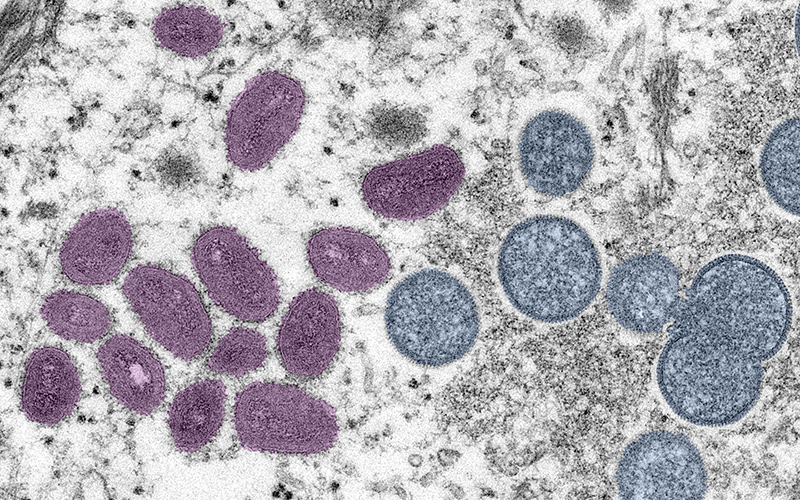
A lot of news is circulating right now about a disease called monkeypox. We asked Mike Hori, MD, VMC infectious disease specialist, to share some basic facts to learn more and reduce concerns that you may have.
Monkeypox is a rare viral disease found mostly in West Africa where it can be spread by animals such as rodents and monkeys. Human outbreaks can occur due to contact with infected animals. This happened in the US in 2003 with imported African rats and prairie dogs. It is far less transmissible than COVID and unlikely to cause to cause a pandemic.
Human-to-human transmission can occur by prolonged contact with:
- Infected sores or body fluids of an infected person
- Items in the environment that have come in contact with an infected person’s sore or fluids, such as clothing or bedding
- Close face-to-face contact and breathing in respiratory droplets from an infected person
A very small outbreak of monkeypox is currently happening in Europe and North America. This appears to be the milder form of monkeypox and most infected people are being cared for in their homes. There appears to be no new mutations to increase spread or make it more dangerous. As of July 6, the CDC is reporting 560 cases in the United States. Public Health – Seattle & King County is reporting nine cases in King County. You can get the most up-to-date numbers on King County’s monkeypox page. The time from exposure to disease onset is up to three weeks, so we expect to see a few more cases.
Symptoms of monkeypox include:
- An early phase can include fevers, chills, aching, gland swelling, sore throat, cough or headache.
- After 1-3 days, a rash may appear that includes red spots in the mouth and on the skin.
- These spots become bumps that fill with fluid, and eventually pus, to become pimples or pustules.
- These bumps can occur anywhere on the body, including the genital area. A rash on hands and feet can happen with this infection, which makes it unusual.
People who are or may be at increased risk for monkeypox include:
- People who have traveled recently (in the last 30 days) to regions where monkeypox has been recently reported, including Africa, Western Europe and Canada
- People who have exposed to someone with monkeypox
- Men who have sex with men
Most people with this infection have had mild disease and do well, but may be sick for several weeks—but people who have immune problems can become more ill. If you are concerned about monkeypox due to travel or other exposure, and a have a rash with fever, stay home and away from others. Then contact your healthcare provider for guidance.

